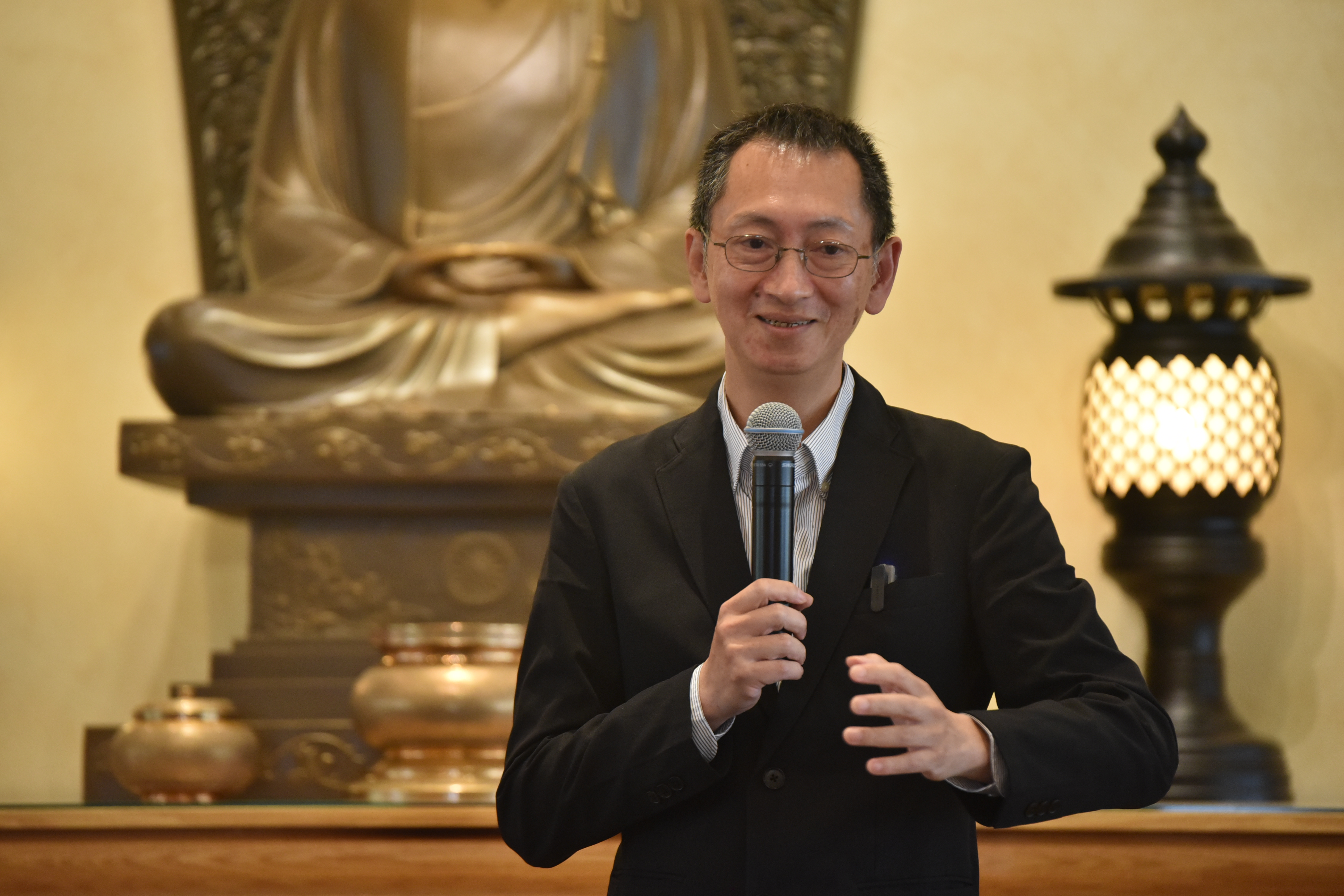Buddhist Modernism:
Professor Weijen Teng’s Lecture at DDVC, Vancouver

Professor Weijen Teng (鄧偉仁教授), department chair of Buddhist Studies of Dharma Drum Institute of Liberal Arts gave a talk on
Buddhist Meditation Tradition and Body-mind Healing in the Context of Buddhist Modernism on August 21 at Dharma Drum Vancouver Centre. This talk was well-regarded by the Buddhist community and it helped Buddhist practitioners to clarify what Buddhist practice means in the midst of modernization and globalization.

Buddhism as an ideology, religion, and practice has been influenced by political, cultural and societal developments at the time throughout history. Professor Teng explained that in the book The Making of Buddhist Modernism, McMahan indicated three major forces: Protestant Reformation, Scientific Revolution, and Enlightenment, as well as, Romanticism had been sharping the develop of Buddhism in the modern era. Under the influence of protestant reformation, a few tends merged into the Buddhist communities, such as “the blurring of the distinction between monk and laity, a more this-worldly orientation, greater social engagement, a de-emphasis on ritual, and an emphasis on individual salvation”. The scientific revolution and enlightenment had been driving the spirituality out of Buddhism and Buddhist practice by examinating Buddhism and Chan meditation through the lenses of neuroscience, and psychology. The Romanticism overemphasizes on the bodily and mental experience; overlooks the importance of other Buddhist practices, such as repentance, reciting Buddha’s name and cultivating percepts. To not lose the true Buddhist way of living in the process of modernization means to clearly aware of the impact of various societal phenomena, such as colonization and globalization on Buddhism modernization.

To be a true Buddhist practitioner is to hold essential teachings of Buddhism and Dharma to heart, such as impermanence, causes-and-conditions, twelve links and Nobel Eightfold Path. To practice Buddhism and Chan meditation means to cultivate precepts, concentration, and wisdom at the same time. Unlike many other types of meditation, such as Mindfulness Based Stress Reduction, and Transcendental Meditation, Chan meditation which is a form of Buddhist practice embraces all Dharma teachings. Being able to distinguish the differences between Chan meditation and other meditation practices; as well, keeping practicing Chan meditation is one way to demonstrate that a Buddhist is cultivating the Nobel Eightfold Path by maintaining the right view, right action, right mindfulness, and right concentration.
Written by Bekki Chen, Dharma Drum Vancouver Centre